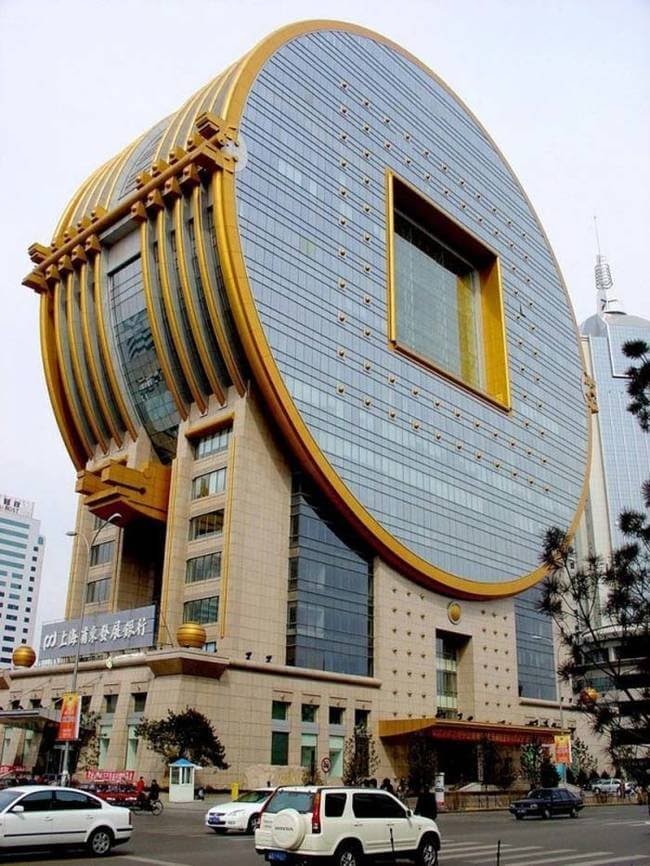Condemning some of the oversized, outlandish and bizarre constructions across the country, the Chinese government on Sunday issued a new directive that bans all such "weird" architecture.
Emphasizing on the fact that buildings should be "suitable, economic, green and pleasing to the eye," the document obtained by Xinhua stated that such "oversized, xenocentric, weird" were against the Chinese cultural tradition. In addition, the new guidelines also require an end to gated communities.
In recent years, several architectural gems, including a building resembling a tea pot and another akin to of a pair of trousers, have come up across China. In fact, the economic boon in China has led to the sprouting of a number of enormous, odd-shaped structures in cities like Beijing and Shanghai during the last few decades.
The latest directive comes in the wake of a high-level meeting held two months back to deal with some problems arising due to rapid urbanization of China. Significantly, the last such meeting was held way back in 1978, when just 18 percent of the entire population of China dwelled in towns or cities. Currently, over 56 percent of China's 1.3 billion people live in urban areas.
What is more important is that the directive also comes in the wake of President Xi Jinping condemning such "weird architecture" during an important symposium on culture on Oct. 15, 2014. Speaking at the convention, Xi strongly advocated against such bizarre structures
Experts are of the view that following the new guidelines from the country's top leaders, it is expected that the design standards for public buildings would be stricter. According to Wang Kai, vice-president of the China Academy of Urban Planning and Design, under the Ministry of Construction, as far as the design of the public buildings, priority should be given to functionality. "We shouldn't go overboard in pursuit of appearances," Kai emphasized.
The new guideline stressed on adopting construction techniques that make use of fewer resources, like prefabricated buildings. Stating that the authorities would encourage such constructions, the guideline added that as much as 30 percent of all new buildings would be prefabricated within a decade, CNN reported.
The media outlet quoted James Shen, a founder of People's Architecture Office in Beijing, as saying that prefabricated structures may perhaps help the country to ensure quality as well as reduced housing costs. In fact, Shen's design office has created prefabricated structures like IKEA, which facilitate modernizing traditional courtyard homes in urban areas.
As the incomes of people have increased in recent years, China has seen a rise in gated communities. These residential housing estates prevent free access to the common public. Now, the new directive has called for an end to this culture. It stated that while the existing gated communities will be opened up to pedestrians and traffic gradually, no new projects will be approved.
Watch the video on top 15 crazy and bizarre architecture buildings in China below:



























